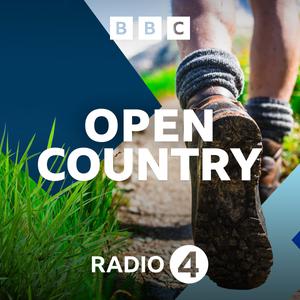
Open Country
BBC Radio 4
Countryside magazine featuring the people and wildlife that shape the landscape of the British Isles
- 24 minutes 37 secondsThese Debatable Lands
Helen Mark visits 50 square miles that were neither England nor Scotland. The Debatable Lands, between Carlisle and Gretna, were home to untameable crime families that petrified the most powerful of Lords and Kings. For hundreds of years governments in London and Edinburgh left the region to its own laws and moral codes. When they did intervene, the result was an explosion of violence that's still visible in the landscape of derelict towers and still audible in the Border Ballads collected by Walter Scott.
Author, Graham Robb guides Helen through the region's complex history and Ian Scott Martin takes her to the ramparts of Gilnockie Tower- the fearsome stronghold of the Armstrong family, one of the most notorious clans of Border Reivers.
The Union of the Crowns in the early 17th century brought the age of the Debatable Land to an end, ushering in a long period of peace broken abruptly in 1915. On the Western Front the British Army was running out of shells. In Westminster the government fell and the decision was made to build an enormous 9 mile long munitions factory, stretching across the region. Rebecca Short of the Devil's Porridge Museum guides Helen around the remains of the industrial landscape in which 30,000 people- 16,000 of them women- worked in the production of the cordite that propelled shells across the battlefields of Belgium and France.
The western tip of the Debatable Land reaches out to the saltmarshes of the Solway Firth. This apparently peaceful landscape soon yields its secrets. The land is constantly battered and transformed by the tides while animals and plants have to adapt to survive the harsh and dynamic conditions. Helen explores the creeks, bogs and rivers with David Pickett of the Wildfowl and Wetlands Trust and Chris Miles of the Botanical Society of Britain and Ireland.
Producer: Alasdair Cross
3 October 2024, 1:53 pm - 24 minutes 24 secondsThe 100 Mile Wildlife Corridor
Martha Kearney follows the River Ouse, from the High Weald to the Sussex coast and - finally - into the sea itself. Along the way, she discovers how one of the UK's largest nature recovery projects is taking root.
The project is called 'Weald to Waves' - it's a wildlife corridor that has been mapped out over more than 100 miles of Sussex landscape and coastline, to encourage biodiversity on a huge scale, connecting food, farming, nature and people. Encompassing more than 20,000 hectares of contiguous habitat, it is a huge coming-together of farmers, land managers, councils, utility companies, wildlife charities, schools, gardeners and community groups. Martha meets some of the people who have pledged to be a part of this huge collaborative effort.
Producer: Becky Ripley
26 September 2024, 2:00 pm - 24 minutes 20 secondsNight under the Stars
For young carers, it can be difficult to find time to get away from home and enjoy the great outdoors. In this programme Helen Mark meets a group of 12-13 year-olds who all have caring responsibilities for a family member at home, but who are spending a night camping out on Dartmoor. She joins them as they pitch their tents, do some river-dipping, and help with feeding farm livestock. As dusk falls, they set off on a night-time walk across the moor - battling their way through gorse bushes in the dark, to reach a rocky outcrop where they lie on their backs to gaze in silence at the stars.
Helen talks to some of the young carers about their experiences, and hears from the charity which organised the trip and the ranger from Dartmoor National Park who guides the young people through the activities. They tell her why it's important to offer opportunities like this and explain how much difference a taste of the outdoors can make to the life of a young carer. For some of them, this is their first experience of spending a night in a tent.
Producer: Emma Campbell
22 September 2024, 11:09 am - 24 minutes 9 secondsAberaeron's Mackerel Festival
Jon Gower is in Aberaeron, Ceredigion, to explore how mackerel (and other fish) have shaped the people and landscape.
Jon joins the pretty harbour town’s annual mackerel festival, where the humble mackerel is given thanks at the end of its season with a funeral procession, complete with wailing widows, a blessing from the local reverend Dilwyn Jones and, most years, a sunset cremation on the beach. Here, Jon meets local townsfolk to hear how fishing connects the generations far back in their families and how livelihoods, mackerel populations and the landscape of this town are changing with the climate crisis.
Jon also speaks to Elinor Gwilym from the Cymdeithas Aberaeron Society, who talk about how the charming aesthetic of the town is influenced by its connection to fishing, with the colourful harbour houses originally built for sea captains.
Producer: Eliza Lomas for BBC Audio, Bristol
12 September 2024, 2:00 pm - 24 minutes 11 secondsWildlife Watching on Mull
The growth of wildlife documentaries and social media has boosted our interest in wildlife. Footage of whales, birds and mammals shot by keen nature lovers around the British Isles has alerted us to the presence of apex predators such as the Orca in the waters around northern Scotland. It's not surprising that people visit the island of Mull in the hope of spotting some of the abundant wildlife. Otters are especially popular at the moment. The creation of the Hebridean Whale Trail has also highlighted the presence of the different cetaceans in the sea around Mull and visitors can take boat tours or walks around the island in search of dolphins, porpoises, minke and humpback whales. If they're lucky they may spot the remaining two West Coast Orca - John Coe and Aquarius. But while nature tourism is welcomed, those who work in wildlife conservation on Mull are keen that visitors are respectful and responsible towards the creatures they've come to see.
Producer Maggie Ayre takes a walk from Tobermory on the Hebridean Whale Trail with Morven Summers and her colleague Sadie Gorvett to learn about the work they do in encouraging visitors to log their cetacean sightings on their app and take part in a Citizen Science survey of marine mammals. She meets Mull's Wildlife Warden Jan Dunlop on Calgary Bay to hear why Jan is concerned about the presence and proximity of too many people to the island's otter population and the impact that can have on the animals. All three advocate a kind of slow nature tourism that means appreciating the beauty of all the wildlife on the island as opposed to going with a checklist of creatures to spot.
Produced and presented by Maggie Ayre
5 September 2024, 3:11 pm - 24 minutes 14 secondsWriting Wildness
Helen Mark heads to the Shropshire hills to discover how to write about nature at The Hurst, a place dedicated to artistic practice. She meets author-tutors Miriam Darlington (Otter Country, Owl Sense) and Patrick Barkham (The Swimmer, Wild Isles) who share with Helen their techniques of encouraging new writers to find their own voice and how to turn observation and reflection into a compelling story. As she wanders through the summertime meadows with the group of budding writers, she hears how they hone their skills of attention and why writing about the natural world matters to them. Helen also gains a sense of this pocket of the natural world within the landscape, finding out about the other species who call these Shropshire woodlands and gardens home.
The Hurst is run by the Arvon Foundation who promote creative writing.
Producer: Eliza Lomas for BBC Audio, Bristol
2 September 2024, 12:02 pm - 24 minutes 20 secondsBattery Rocks
Helen Mark discovers a wilderness in the heart of Penzance, in West Cornwall. It's a rocky headland loved by local people, with steps into the open water and views of St Michael's Mount. If you set up a time-lapse camera here at Battery Rocks, you'd see a steady stream of people arriving at this unobtrusive place from sunrise to sunset. It's popular with swimmers, snorkellers, rock-poolers and poets, and it's a haven for wildlife.
Battery Rocks is a haven for people too, a life-saving place of joy and community, according to snorkelling instructor Katie Maggs. Helen goes snorkelling with Katie and discovers how this place inspired poet Katrina Naomi's new collection 'Battery Rocks'. Lucy Luck takes Helen on a rock pool ramble and Mike Conboye leads her in a sunrise swim at the rocks, with music from his acapella group, Boilerhouse.
Producer: Mary Ward-Lowery
29 August 2024, 2:30 pm - 24 minutes 12 secondsFootball Falcons Rookies and Rooks
Nadeem Perera presents this week's Open Country from Richmond Park. He's with two young footballers from West Ham and Birmingham City. Nadeem is nature mad and wants to share his passion for birdwatching with the young players as a way of using nature as a tool for better sportsmanship. As a football coach as well as wildlife presenter, Nadeem believes an appreciation of nature can be incorporated into football clubs' daily outdoor training sessions. He's in Richmond Park where he first discovered his love of the outdoors and takes Manny Longelo and Liam Jones on a walk around the park guided by Assistant Park Manager Peter Laurence. Along the way he sets the boys a task of spotting as many birds as they can in order to be crowned the inaugural Open Country Man of the Match.
Producer: Maggie Ayre
22 August 2024, 3:55 pm - 24 minutes 19 secondsThe Sound of The Fens
The people and wildlife that shape the landscape of the British Isles
8 August 2024, 2:37 pm - 24 minutes 14 secondsAnneka Rice and Maggi Hambling in Suffolk
Unlikely as it sounds Anneka Rice has long been part of a small painting group run by the extraordinary artist, Maggi Hambling. Over the years they've developed a strong bond. As Maggi puts it, the painting group is 'like family' to her. In this special episode of Open Country, Anneka travels to Suffolk to find out more about the county that has inspired Maggi's work: from her brooding seascapes, to the once controversial but now lauded Scallop on Aldeburgh beach.
They start the day in a dank, dark, tree-covered ditch where Maggi hid as a teenager when she was too nervous to attend a painting class. Then to Maggi’s home, where - leaving the verdant overgrowth of her garden - they enter her studio where green (a colour she hates) disappears… there are blacks and greys and just a bit of pink.
Next, onto the bleak but beautiful beach at Sizewell, it’s here in the shadow of the nuclear power plant that the churning North Sea most speaks to Maggi. And finally to the huge steel sculpture of the Scallop on Aldeburgh beach… a tribute to Benjamin Britten and now one of the area’s most popular attractions. As Maggi drives Anneka from location to location, the warmth, humour and friendship between the two shines out.
Please see the 'related links' box on the Open Country webpage for this episode to find more info about the Cedric Morris/Arthur Lett-Haines exhibition in July 2024.
Presenter: Anneka Rice Producer: Karen Gregor
13 June 2024, 2:30 pm - 24 minutes 36 secondsWiltshire's white horses
Wiltshire has more chalk hill figures than any other county in the UK, with no fewer than eight white horses carved into its rolling hills. They're all slightly different, and were carved into the hillsides at different times, often to mark an important occasion such as the coronation of Queen Victoria. In this programme, Helen Mark visits some of them - from the oldest and probably best-known one at Westbury, to the much smaller and less prominent horse at Broad Town near Swindon. She finds out about their history and significance, and asks why they became so popular in the 18th and 19th centuries. The tradition continues into the present-day, with the most recent horse, at Devizes, created in 1999 to mark the Millennium. The white horses are a key feature of the Wiltshire landscape, and have become an unofficial emblem of the county.
The horses have to be regularly maintained. Left unattended, they would gradually revert to nature, become overgrown with weeds and lichen and simply disappear. In Broad Town, Helen meets up with a team of volunteers who are spending their Sunday morning perched on a steep hillside, weeding and putting fresh lime powder onto their horse, to keep it white and visible.
As well as its horses, Wiltshire is also home to carvings with a military connection - in the shape of regimental badges and insignia. There's also a map of Australia, a YMCA logo, and even a giant kiwi. Helen visits some of the military carvings at Fovant near Salisbury, and finds out how they were created by soldiers stationed at training camps in the area during the First World War. She discovers that they're still important to the county today, more than a century on.
Produced by Emma Campbell
6 June 2024, 2:30 pm - More Episodes? Get the App
Your feedback is valuable to us. Should you encounter any bugs, glitches, lack of functionality or other problems, please email us on [email protected] or join Moon.FM Telegram Group where you can talk directly to the dev team who are happy to answer any queries.
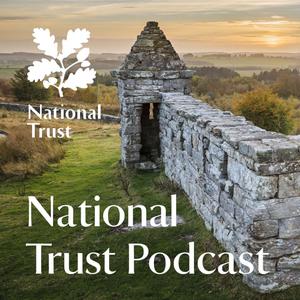 National Trust Podcast
National Trust Podcast
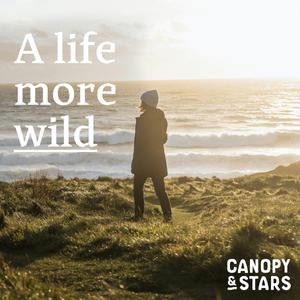 A Life More Wild
A Life More Wild
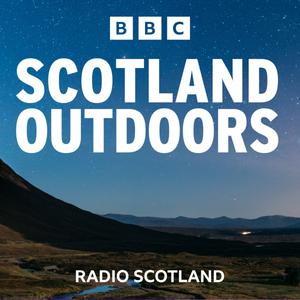 Scotland Outdoors
Scotland Outdoors
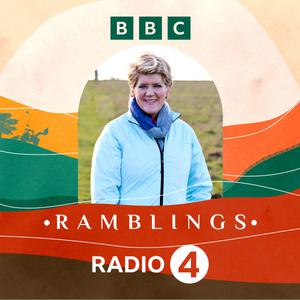 Ramblings
Ramblings
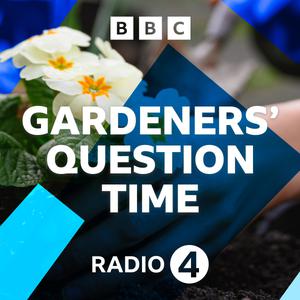 Gardeners' Question Time
Gardeners' Question Time
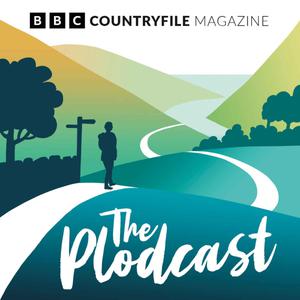 The Plodcast
The Plodcast